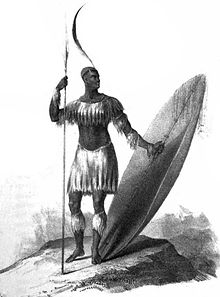
Boer War
The South African Boer War begins between the British Empire and the Boers of the Transvaal and Orange Free State.
The Boers, also known as Afrikaners, were the descendants of the original Dutch settlers of southern Africa. Britain took possession of the Dutch Cape colony in 1806 during the Napoleonic wars, sparking resistance from the independence-minded Boers, who resented the Anglicization of South Africa and Britain’s anti-slavery policies. In 1833, the Boers began an exodus into African tribal territory, where they founded the republics of the Transvaal and the Orange Free State. The two new republics lived peaceably with their British neighbors until 1867, when the discovery of diamonds and gold in the region made conflict between the Boer states and Britain inevitable.
Minor fighting with Britain began in the 1890s, and in October 1899 full-scale war ensued. By mid June 1900, British forces had captured most major Boer cities and formally annexed their territories, but the Boers launched a guerrilla war that frustrated the British occupiers. Beginning in 1901, the British began a strategy of systematically searching out and destroying these guerrilla units, while herding the families of the Boer soldiers into concentration camps. By 1902, the British had crushed the Boer resistance, and on May 31 of that year the Peace of Vereeniging was signed, ending hostilities.
The treaty recognized the British military administration over Transvaal and the Orange Free State and authorized a general amnesty for Boer forces. In 1910, the autonomous Union of South Africa was established by the British. It included Transvaal, the Orange Free State, the Cape of Good Hope, and Natal as provinces.
-------------------------------------------------------------------------------------------------------------------
First Anglo-Boer War
Main article: First Boer War
The First Boer War also known as the First Anglo-Boer War or the Transvaal War, was fought from 16 December 1880 until 23 March 1881. It was the first clash between the British and the Transvaal Boers. It was precipitated by Sir Theophilus Shepstone, who annexed the South African Republic (Transvaal Republic) for the British in 1877. The British consolidated their power over most of the colonies of South Africa in 1879 after the Anglo-Zulu War, and attempted to impose an unpopular system of confederation on the region. The Boers protested and in December 1880 they revolted.
Several battles at Bronkhorstspruit, Laing's Nek, Schuinshoogte and Majuba Hill proved disastrous for the British where they found themselves outmaneuvered and outperformed by the highly mobile and skilled Boer marksmen. With the British commander-in-chief of Natal George Pomeroy Colley killed at Majuba and British garrisons under siege across the entire Transvaal, the British were unwilling to get further involved in a war which was already seen as lost. As a result, the British government of William Gladstone signed a truce on 6 March, and in the final peace treaty on 23 March 1881, they gave the Boers self-government in the Transvaal under a theoretical British oversight.
The Jameson Raid
Main article: Jameson Raid
The Jameson Raid (29 December 1895 – 2 January 1896) was a raid on Paul Kruger's Transvaal Republic carried out by Leander Starr Jameson and his Rhodesian and Bechuanaland policemen over the New Year weekend of 1895-96. It was intended to trigger an uprising by the primarily British expatriate workers (known as Uitlanders, translated into English it means "Foreigners") in the Transvaal but failed to do so. The raid was ineffective and no uprising took place, but it did much to bring about the Second Boer War and the Second Matabele War.
Growing impatient, Jameson launched the Jameson Raid in October 1895, and managed to push within twenty miles of Johannesburg before superior Boer forces compelled him and his men to surrender.
The affair brought Anglo-Boer relations to a dangerous low and the ill feeling was further heated by the "Kruger telegram" from the German Emperor, Kaiser Wilhelm II. It congratulated Paul Kruger on defeating the raid, and also appeared to recognise the Boer republic and offer support. The emperor was already perceived as anti-British, and a naval arms race had started between Germany and Britain. Consequently, the telegram alarmed and angered the British.
Second Anglo-Boer War
Main article: Second Boer War
The Second Boer War, also known as the Second Anglo-Boer War and the South African War, 11 October 1899 - 31 May 1902 was the first major international conflict of the 20th century. The war was fought between the British Empire and the two independent Boer republics of the Orange Free State and the South African Republic (Transvaal Republic). After a protracted hard-fought war, the two independent republics lost and were absorbed into the British Empire.
In all, the war had cost around 75,000 lives — 22,000 British soldiers (7,792 battle casualties, the rest through disease), 6,000-7,000 Boer Commandos, 20,000-28,000 Boer civilians, mostly woman and children, and an estimated 20,000 black Africans. The last of the Boers surrendered in May 1902 and the war ended with the Treaty of Vereeniging in the same month. The Union of South Africa was established in 1910. The treaty ended the existence of the Transvaal and the Orange Free State as Boer republics and placed them within the British Empire.
The Boers referred to the two wars as the Freedom Wars. Those Boers who wanted to continue the fight were known as "bitter-einders" (or irreconcilables) and at the end of the war a number like Deneys Reitz chose exile rather than sign an undertaking that they would abide by the peace terms. Over the following decade, many returned to South Africa and never signed the undertaking. Some, like Reitz, eventually reconciled themselves to the new status quo, but others waited for a suitable opportunity to restart the old quarrel. At the start of World War I the bitter-einders and their allies took part in a revolt known as the Maritz Rebellion.
Wikipedia